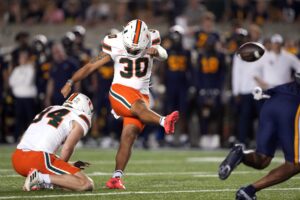The undesirable consequences from the Jerry Sandusky scandal keep piling up for Penn State University, now years after Sandusky was convicted and incarcerated.
Mike McQueary Wins Defamation Lawsuit Against Penn State
Former Penn State assistant football coach Mike McQueary filed a defamation, misrepresentation and whistleblower lawsuit against his former employer. His allegations included defamation in a statement by then-school president Graham Spanier. The misrepresentation charge came from school officials telling him that they would take seriously his initial report of Sandusky’s abuse, and failing to do so. The whistleblower allegation rose from his suspension in 2011 and the non-renewal of his contract in 2012, which McQueary viewed as retaliatory for his role in the investigation that led to Sandusky’s conviction.
McQueary also alleged that all these elements were responsible for his failure to find another coaching job, or any other kind of work, since his contract wasn’t renewed.
McQueary was awarded the sum of $7.3 million by a jury on Thursday, after four hours of deliberation. Punitive damages covered $5 million, followed by $1.15 million for the defamation charge and $1.15 for the misrepresentation charge.
Penn State’s Response to the Allegations
Penn State countered McQueary’s allegations with the stances that his suspension in 2011 was for his own safety. Penn State maintained that the school had received threats on McQueary’s life, although McQueary’s counsel argued that the school had never produced any evidence of such threats.
Penn State also maintained that it had acted appropriately to McQueary’s initial report, and that if such actions by the school were not to McQueary’s satisfaction, he always had the option to go to the police himself.
As far as McQueary’s difficulties in finding work, Penn State’s argument was that McQueary’s lack of contacts outside of the school, small body of work, the media attention and public opinion were all factors in his failures, not Spanier’s statement or anything else intentionally done by the school to defame McQueary.
Where All Parties Go From Here
While the jury has ruled in McQueary’s favor, and actually awarded him nearly twice the amount he was originally seeking, the case is not yet over.
The presiding judge, Thomas Gavin, must still weigh in on McQueary’s whistleblower claim. That dynamic will decide whether Gavin determines there is sufficient evidence to mark McQueary’s suspension and the non-renewal of his contract were retaliatory. If Gavin finds in McQueary’s favor, he could receive further monetary damages.
There has been no mention or other signal from Penn State counsel Nancy Conrad either affirming or denying the possibility of an appeal. If Gavin finds in Penn State’s favor on the whistleblower charge, that option would also be available to McQueary as well.
Whether McQueary will ever coach football at the FBS level, or any other level, is still up in the air. Schools may still be timid to hire even an assistant who would attract media attention for the wrong reasons, especially one who hasn’t coached in nearly five years.
McQueary may have won his day in civil court, but winning in the court of public opinion to the point where he can return to the sidelines at the same level he was at may take more than monetary damages. That redemption may never come for McQueary.






